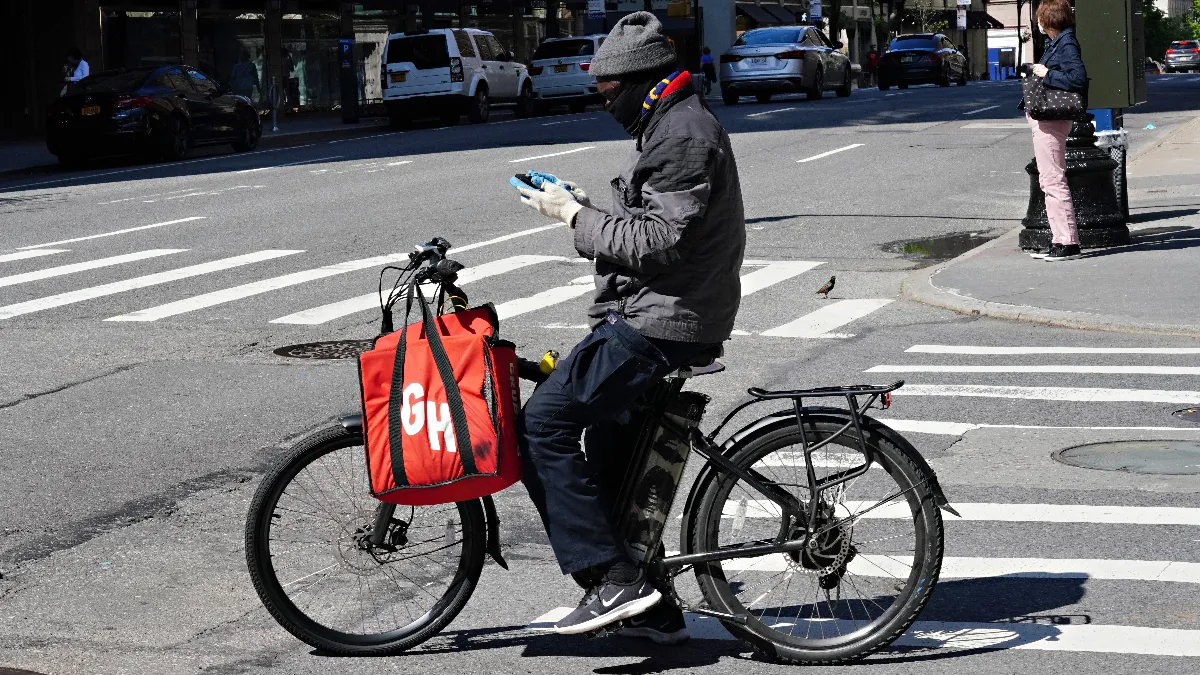Dive Brief:
- Assemblywoman Lorena Gonzalez (D-San Diego) on Wednesday sent AB 286 — a bill that would require food delivery companies to provide customers and restaurants with itemized cost breakdowns of third-party fees and commissions charged on each transaction — to California Gov. Gavin Newsom's desk for consideration.
- AB 286 would also allow restaurants to set the price of food and drink sold through delivery aggregators.
- The proposed legislation comes as consumer, restaurant and government pushback against third-party delivery platforms grows. Earlier this week, Chicago sued Grubhub and DoorDash, claiming their business practices are unfair and "harm restaurants and mislead consumers."
Dive Insight:
Gonzalez argues restaurant delivery transactions "obscure how much money is actually going to individual restaurants," making it challenging for diners to know how best to support local eateries.
"We've seen reports of restaurant owners losing money on food delivery app orders because of hidden fees from companies like DoorDash, UberEats and GrubHub," Gonzalez said in a press release. "AB 286 is about providing much-needed transparency so restaurants and customers know exactly what they're being charged up front, and gives restaurant owners the choice to share with their customers how much from the transaction is actually going to their business."
AB 286 would also protect delivery couriers from tip theft through this cost transparency, according to the release. The bill would ensure these workers are entitled to the full amount of tips and gratuities after completing a delivery.
This proposed legislation reflects how efforts to curb third-party aggregators' influence on the restaurant market are becoming more complex. When delivery fee caps were first starting to creep in major restaurant cities across the country — New York proposed a 10% commission cap even before the pandemic — these bills were geared toward restaurant welfare. Now, local governments are looking at the entire restaurant delivery ecosystem when weighing checks and balances against these companies to ensure gig workers and diners are also protected from what some allege to be predatory practices.
Grubhub, DoorDash and other major delivery providers deny accusations that their business models take advantage of restaurants and consumers. But sentiment around the ethics and efficacy of the channel is already changing rapidly. Now that San Francisco and New York City have both passed permanent 15% delivery fee caps, it's possible that more markets will consider caps and other restrictions similar to Gonzalez's bill. Such a trend would be a win for restaurants calling for smaller fees and a blow for aggregators chasing profitability, though these firms argue delivery fee restrictions lead to reduced volumes for restaurants.














